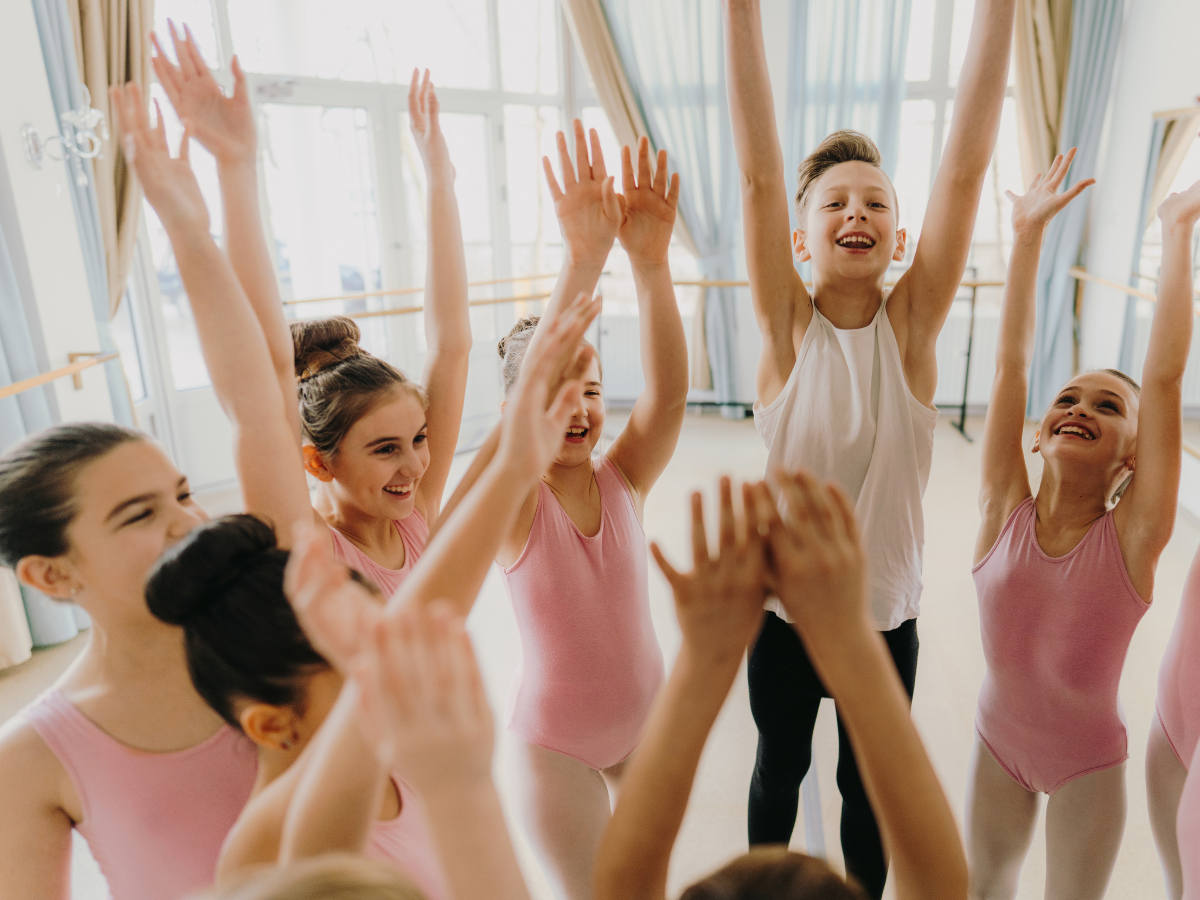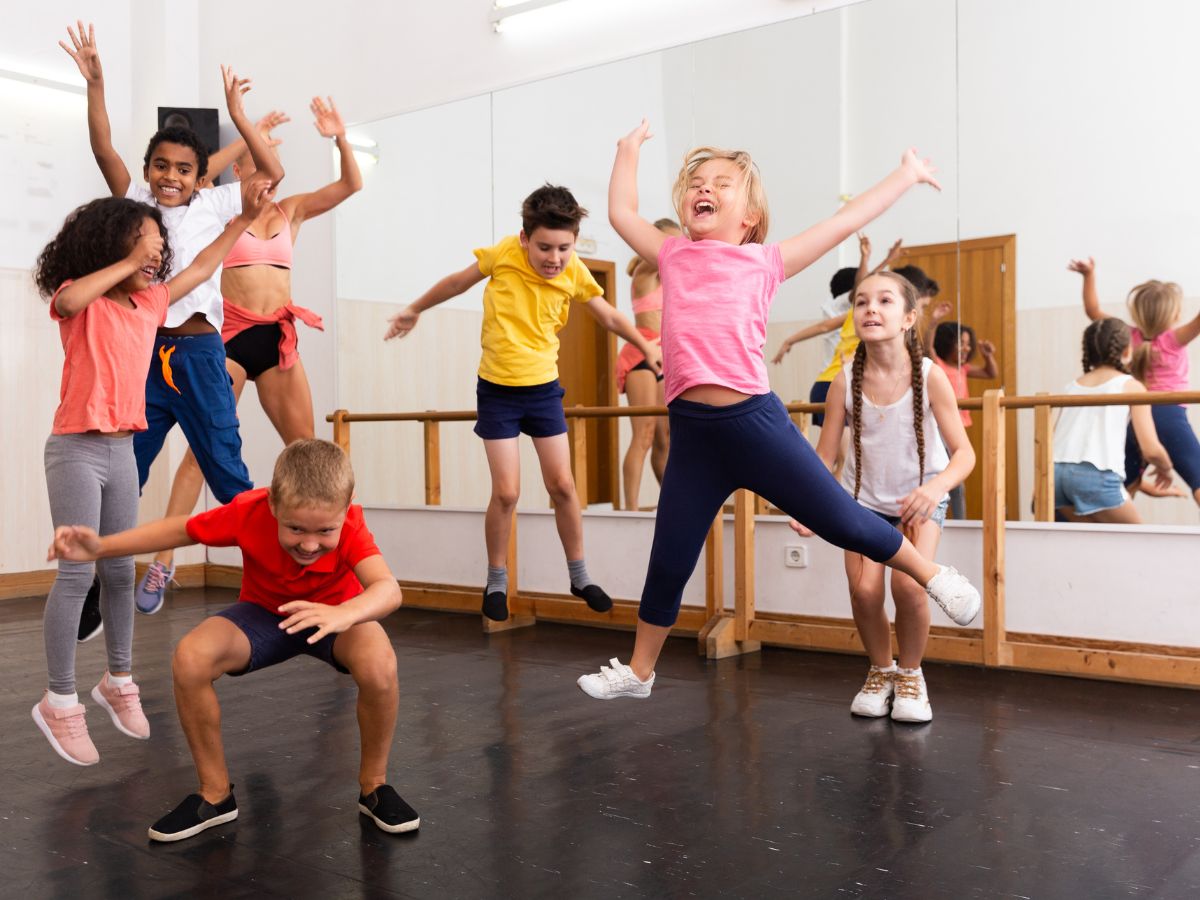Have you ever wondered – what are these “Competition Dancers” all about, and should I consider becoming one? Maybe you are one and you have wondered “Is this really worth it? Will this help my future?” Well, these are valid questions – some that should be taken very seriously by each young dancer as they choose their path.
I know, I know… Ever since the dance world exploded onto the reality TV scene, competition dancers have received quite a reputation. I don’t want to get into the drama, nor do I profess that competition dancing is the right path for everyone. But in my 15 years teaching in competitive studios, I have come to see many positive outcomes that I would love to share and discuss as you consider your dancing future.
First, it’s important for you to know that I did not grow up in a “competition studio”. I didn’t know anything about competitions – and I felt lucky to be training at a place that had an unusual amount of performance opportunities. We danced at community events, local theme parks, rest homes, church events, and even toured California and Florida each summer performing at major theme parks. It was so much fun, and while I do not necessarily regret my choice to skip out on the competitions, I now see how much I missed out on – and potentially how different my career could have been had I competed growing up. Here’s what I missed:
1. Experience: The first and most important reason I believe competitions are great for a dancer is that it gives you an opportunity – several times a year – to put yourself out on stage in a high-stakes environment. This training is absolutely priceless for young dancers, and I don’t see any other venue where it is as feasible. Competition dancers become stage PROS! They learn how to rehearse effectively, work efficiently in class to prepare, work through nerves, focus amidst adrenaline and they get comfortable under those stage lights. As much as some in the professional world might “pooh pooh” competition dancers, I have rarely seen one get cut at an audition for lack of performing experience. Generally speaking – competition dancers know how to work the stage. And that is simply because competitions give them the opportunity to do so again and again.
2. 2 Words: JUDGES CRITIQUES. These dancers get to hear PERSONALIZED thoughts, opinions and expertise of dozens of industry professionals each year. How valuable is that?! Not only can these dancers improve and receive several ideas about their training through these critiques, but they, along with their teachers, can begin to understand how to dissect their choreography and find ways to make their performance more appealing to their audience. I don’t know any other semi-affordable way to get this many trained eyes on a dancer in one season. This alone (and well above the value of any trophy) should be reason enough to consider competition dancing.
3. Connections, connections, connections. This is one reason that I personally wish I would have been in the competition scene as a young dancer. In my mind, there are few other (once again, semi-affordable) ways to: A) get your face in front of so many of the “Powers That Be” in the dance industry, and B) make countless lasting and useful connections with dancer-peers that could help you in your future. You know what they say – it’s WHO you know, not WHAT you know that will help you in the end! In my career there has been too many times where I have been out of the loop as far as the who’s who of the industry. Things I know could have helped me out if I had been competing. And a quick personal example- the two young child dancers I hired for my Capezio ACE show “Positive Space” were competition dancers that I judged at VIP Dance competition! I didn’t even hold an audition, just hand-picked them from what I saw them do on the competition stage! Connections, my friends.
4. OPPORTUNITIES! You can audition all the live-long-day… but rarely are you going to find a weekend where you can dance and perform all week – learn, grow, get connections, get personalized critiques – and on top of all of that, qualify for scholarships and opportunities galore! Many intensives, audition invitations, conventions, even Broadway shows and college dance programs have begun to learn that competition dancers are talented! These organizations benefit from having more talent in their respective programs – so they have teamed up with many competitions and conventions to give (literally) millions of scholarship dollars to -you guessed it- COMPETITION DANCERS! You could argue that a dancer could still get many of these scholarships through other means… but I would argue back that you would be using hours of your time, lots of money and risking quite a bit of your future traveling to and/or video taping for dozens of auditions when as a competition dancer, these opportunities are spread out before you as you use these competition weekends for so many other benefits simultaneously. *deep inhale to recover from run on sentence*
5. Probably not the last – and certainly not the least of our list: Competitions have forced dancers, teachers and choreographers to become simply much, much better. Before competitions became hugely popular – dance was not nearly as cutting edge. Because of the grand exposure competitions (hand-in-hand with the internet and YouTube) have given dance, dancers are doing things I never dreamed of as a child! So much of the technique, “tricks” and flexibility I see on stage now were never even attempted 20 years ago. Teachers are noticing what the top studios are putting out there and asking – why not my dancers? It is pushing teachers to get better training themselves, hire great choreographers, and pass the best along to their students. I can say as a teacher and choreographer I wouldn’t be half of what I have become without the help of competitions. So much inspiration, constantly pushing the envelope, evolving, stretching our creativity and proving that the human body has so few boundaries. Is it partially because we want to be better than our rival? Get the high scores? Maybe sometimes… And though that may not be the most pure form of motivation, I can say that the dance world has definitely benefited from it! I can only imagine what the future holds for competition dancers as we continue to inspire and push one another to amazing new heights!
WITH ALL THIS SAID – there are some major red flags to look for when competing, both in yourself and in the studio you choose to compete with:
-Do not base your worth on a piece of plastic. Notice how nowhere in the reasons listed above did I mention the “trophy” being a benefit. Dance is SUBJECTIVE, and yes – even political at times. Any given day with a different set of judges, a different result could be met. Placements should not mean much. Remember that (aside from actual technical flaws/weaknesses) it is often opinion, not fact, that says one dancer is better than the other. Do not decide that because you didn’t place in the top 5 that you are worthless. Take those worth-their-weight-in-gold judges critiques and find out what you can work on to get a better score and -more importantly- become a better dancer. Then go back to the studio and do it!
-Participate in competitions AND conventions. I know conventions can be costly, but there is so much value in taking those classes. Once again, you get even more exposure/connections in class, and you go home after the weekend having grown “leaps and bounds” -pardon the pun. Competitions are getting better and better – some even offering a few classes too! – but give yourself the opportunity to take a nice weekend-long convention at least once or twice a year. You will not regret it.
-Don’t expect a future employer to care that you were “Miss Junior Dance Explosion Cincinnati Chapter 48 2011″. These things on a resume will rarely make any splash, (all the more reason to disregard the trophy!) However, showing that you have taken class under certain “big names”, qualified for scholarships and intensives, or that you actually have met this employer through the competition circuit– well, that could definitely help you get that job!
-Don’t let the competition world become EVERYTHING. There is so much beyond competitions with which dancers need to educate themselves. Go to professional shows, learn about dance history, understand the modern and ballet roots behind the movement you are learning, research cultural dance styles and techniques. Do not become one-dimensional. Keep learning. Keep digging. Competitions are important and valuable – but you should know that although you will take those valuable things with you… the dance world is infinitely more than competitions. Dance is a universal language of human expression that engulfs the globe.
Dance on,
Bree






